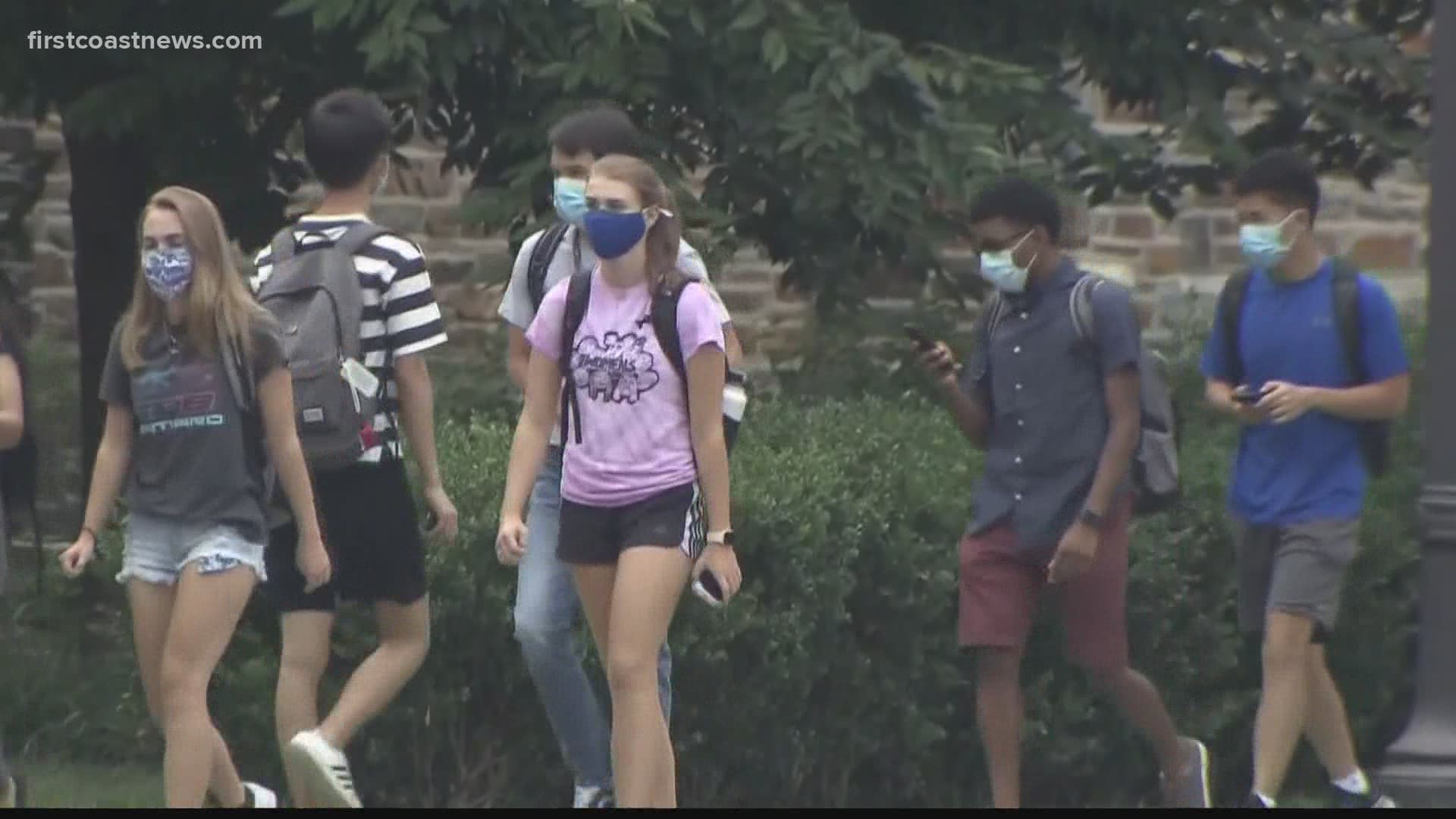JACKSONVILLE, Fla. — A bill introduced in the Florida Senate looks to impose new restrictions on Bright Futures scholarship funds, particularly targeting majors state and higher education leaders would deem to be less employable.
Senate Bill 86, introduced by Republican State Senator Dennis Baxley of Lady Lake, would direct the Board of Governors and the State Board of Education to compile a list of undergraduate and graduate programs that would "lead directly to employment."
Students choosing to major in programs left off the list would only be eligible to receive funding for up to 60 credit hours, compared to eligible students in programs on the list who would continue to receive the full 120 credit hours.
"It's definitely not fair," said Mason Hicks, a freshman at the University of Florida majoring in international studies and economics. "Everyone should be given a chance, especially [since] there's so many jobs that only require a college degree, and it's not very important what type of degree that is."
If the Republican majority in the state legislature passes the bill, it would take effect in the 2022-23 school year.
"As taxpayers we should all be concerned about subsidizing degrees that just lead to debt, instead of the jobs our students want and need," Baxley said in a press release. "We encourage all students to pursue their passions, but when it comes to taxpayer subsidized education, there needs to be a link to our economy, and that is the goal of this legislation."
The Florida Lottery funds the Bright Futures Scholarship Program. It has awarded more than $6.2 billion to students since 1997.
Monica Hicks, Mason's mother, said she doesn't think any effort to reduce the state's budget should come out of the pockets of students and parents.
"It is a scholarship. It's what it was for, it's what they earned. Let's let students who earned that scholarship keep it," Hicks said. "Who is anyone to say that one degree is better than another?"
And she added that maintaining funds for Bright Futures as they stand now keeps a number of students from going out of state for higher education.
"If the goal is to keep our students here, then let's do what we can to keep our students here," Hicks said.
The younger Hicks told First Coast News that funds from the Bright Futures programs will allow him to attend graduate school without being burdened by additional debt.
He said he and others intentionally worked toward achieving the necessary GPA in high school to attain funds from Bright Futures.
If passed, the bill would also establish two new award programs:
- Florida Bright Opportunities Grant Program: The bill establishes the program for Pell Grant-eligible students in a certificate or associate degree program who still owe tuition and fees at Florida colleges or career centers after the student has applied all federal gift aid and state financial assistance. The additional award covers tuition and fees, plus a book stipend, and is awarded on a first-come first-served basis.
- Florida Endeavor Scholarship: The legislation establishes the program for students without a high school diploma who wish to enroll in a certificate or high school equivalency program at a career center or college. Students can qualify for the award if they earn 225 clock hours with a 2.5 GPA. The scholarship covers tuition and fees; awarded on first-come, first-served basis, with priority for returning students.

